
News
Student Blog: Florentine Escapades
 With thanks to our kind tutors, the College and the Holroyd-Collieu-Stelling-Hall Memorial Travel Grant, we were afforded the necessary means to soak up as much art, history, language and food as we possibly could in beautiful Florence this summer.
With thanks to our kind tutors, the College and the Holroyd-Collieu-Stelling-Hall Memorial Travel Grant, we were afforded the necessary means to soak up as much art, history, language and food as we possibly could in beautiful Florence this summer.
Student Blog: A summer on board with Rolls-Royce
 There is no doubt that an air of prestige surrounds the brand, Rolls-Royce. Although most of those outside engineering circles may hold the belief that Rolls-Royce are responsible for manufacturing the line of luxury cars, the reality of their nature – an aerospace giant which delivers civil and military aircraft engines – still beckons that same degree of class in the world of engineering.
There is no doubt that an air of prestige surrounds the brand, Rolls-Royce. Although most of those outside engineering circles may hold the belief that Rolls-Royce are responsible for manufacturing the line of luxury cars, the reality of their nature – an aerospace giant which delivers civil and military aircraft engines – still beckons that same degree of class in the world of engineering.
Student Blog: A Summer on Bird Island
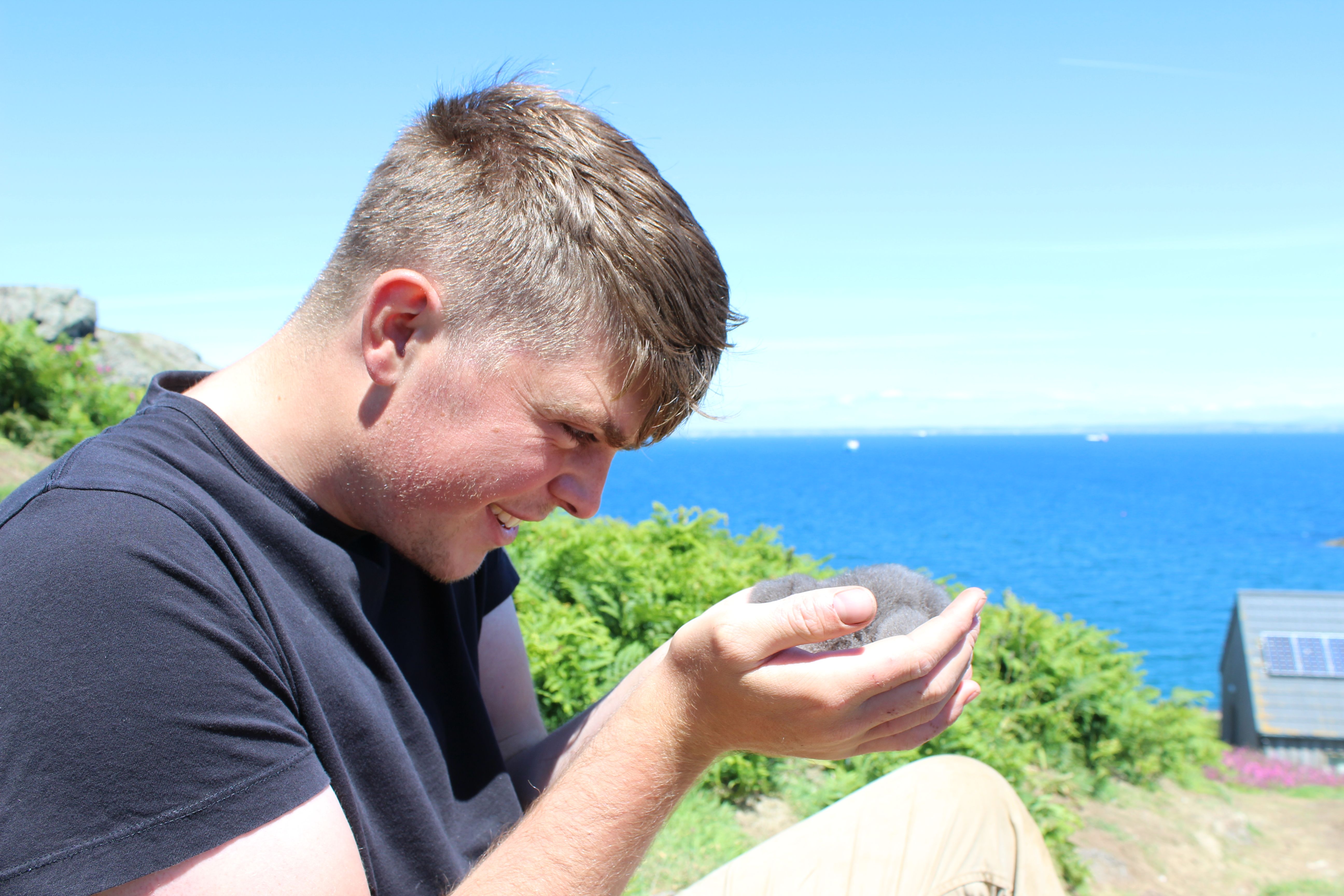
Mr John Bowers QC appointed Principal-Elect of Brasenose
 Brasenose College is delighted to announce the election of Mr John Bowers QC as the next Principal.
Brasenose College is delighted to announce the election of Mr John Bowers QC as the next Principal.
Mr Bowers will take up his new post on 1st October 2015, when Professor Alan Bowman retires at the end of the next academic year.
Mr John Bowers QC appointed Principal-Elect of Brasenose (2)
Brasenose College is delighted to announce the election of Mr John Bowers QC as the next Principal. Mr Bowers will take up his new post on 1st October 2015, when Professor Alan Bowman retires at the end of the next academic year.
Student Blog: Summer Eights
 By Molly Ludlam-Steinke – Women’s Captain-elect (and First Year Historian)
By Molly Ludlam-Steinke – Women’s Captain-elect (and First Year Historian)
'Rowing is perhaps the most popular sport at Oxford, with around ten thousand spectators lining the banks of the Isis a couple of weeks ago to cheer frantically at the odd tradition which is Summer Eights.
Student Blog: Sword-Fighting with the Ashmole Society
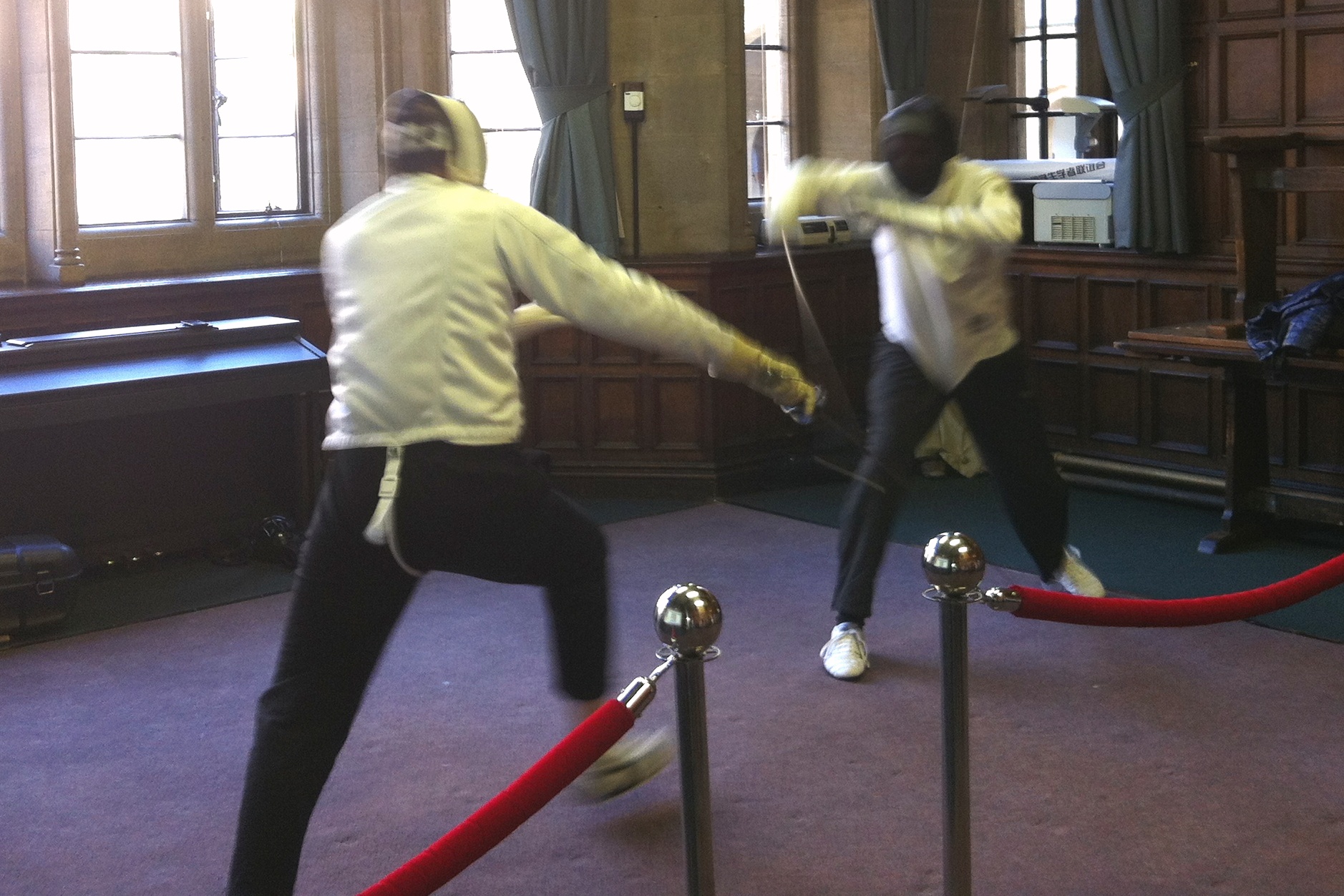 Last month the Ashmole Society, Brasenose's history society, was treated to a fantastic demonstration of 18th and 19th century sword-fighting and pugilism (boxing and wrestling) from Milo Thurston and Simon Scott,
Last month the Ashmole Society, Brasenose's history society, was treated to a fantastic demonstration of 18th and 19th century sword-fighting and pugilism (boxing and wrestling) from Milo Thurston and Simon Scott,
Brasenose staff win awards
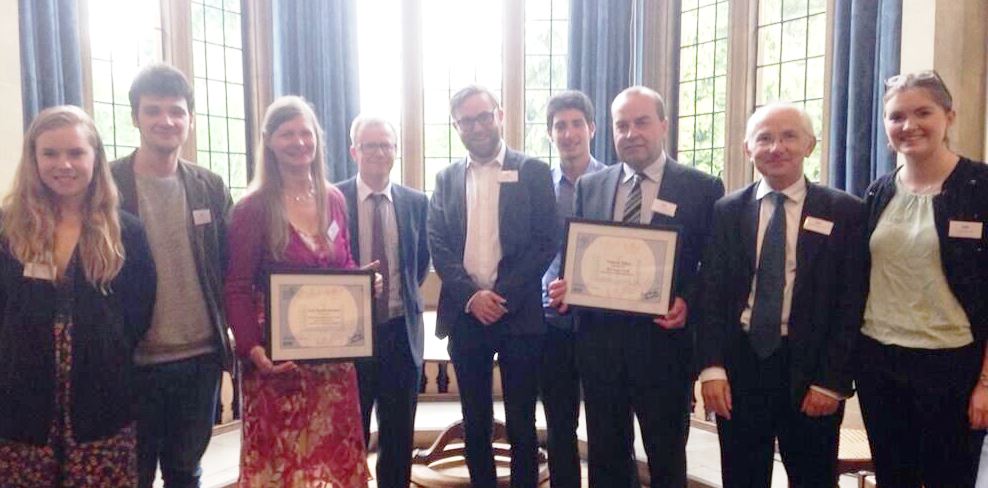 Andrew Talbot and Professor Elspeth Garman have won awards given by Oxford University Student Union
Andrew Talbot and Professor Elspeth Garman have won awards given by Oxford University Student Union
Open Days 2014 - come and visit!
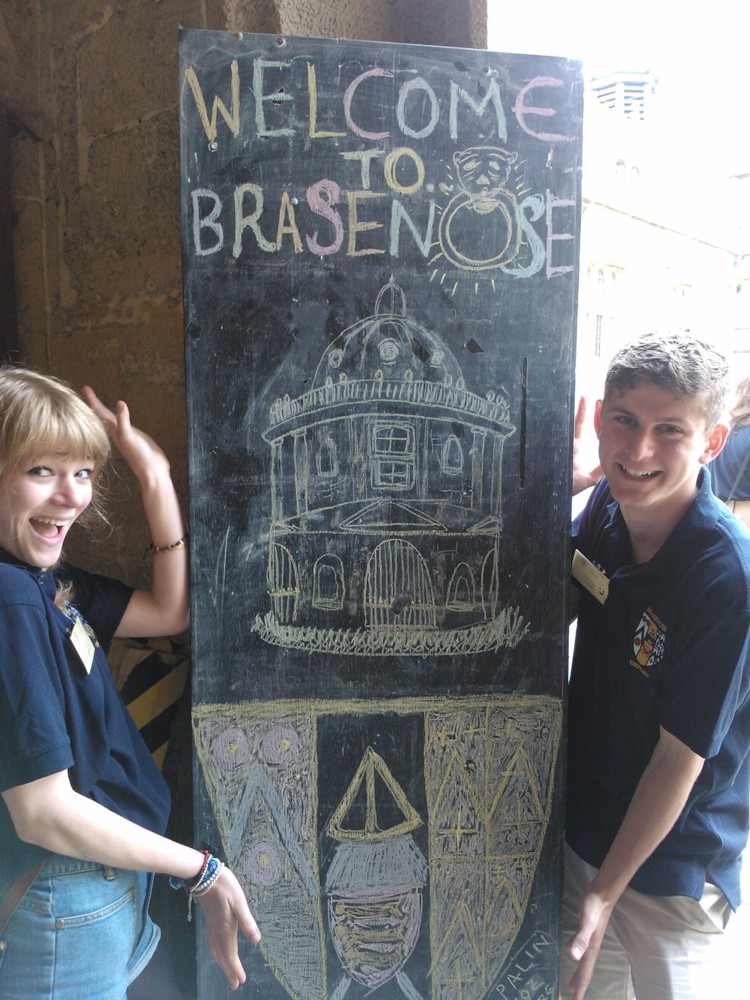 The next Open Days at Brasenose College will be 2nd and 3rd July, and 19th September 2014. The college will be open from 9am to 5pm, and there’s no need to book, just turn up if you are interested in applying to Oxford for undergraduate study.
The next Open Days at Brasenose College will be 2nd and 3rd July, and 19th September 2014. The college will be open from 9am to 5pm, and there’s no need to book, just turn up if you are interested in applying to Oxford for undergraduate study.
Ale Verses 2014
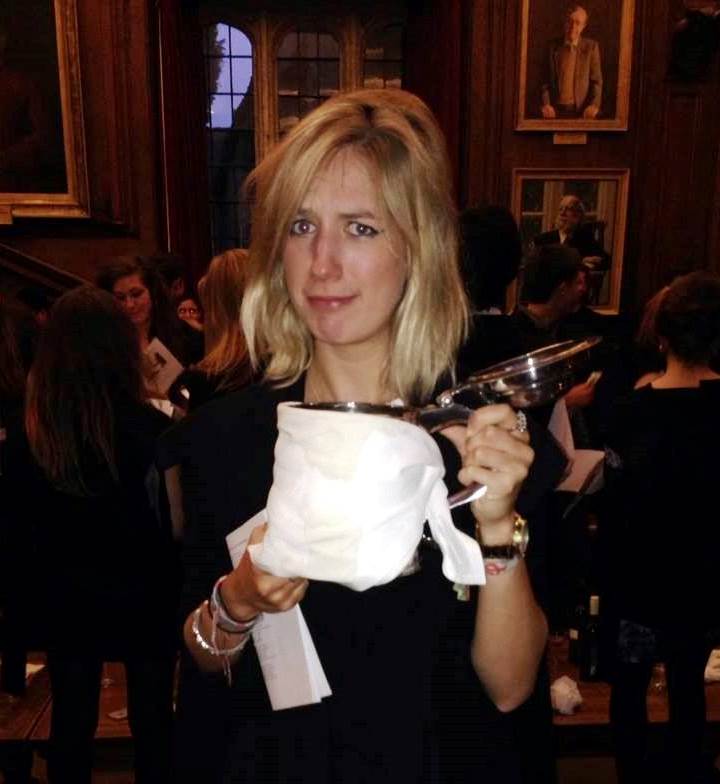 By Henry Zeffman - JCR President and Second Year PPE student
By Henry Zeffman - JCR President and Second Year PPE student
On the evening of Tuesday 29th April, Brasenose came together to perform Ale Verses, one of College’s most peculiar traditions
Beatles at Brasenose
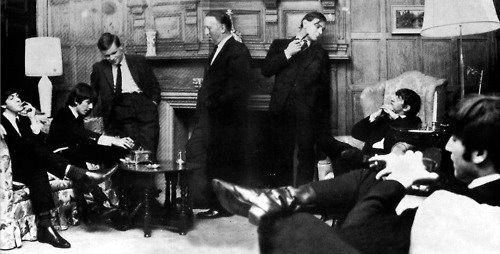 This week marks 50 years since the Beatles visited Brasenose College. The Fab Four came to Brasenose on 5th March 1964 for a short time, at the climax of a fund-raising appeal by the charity Oxfam.
This week marks 50 years since the Beatles visited Brasenose College. The Fab Four came to Brasenose on 5th March 1964 for a short time, at the climax of a fund-raising appeal by the charity Oxfam.
Tutorials in Borneo
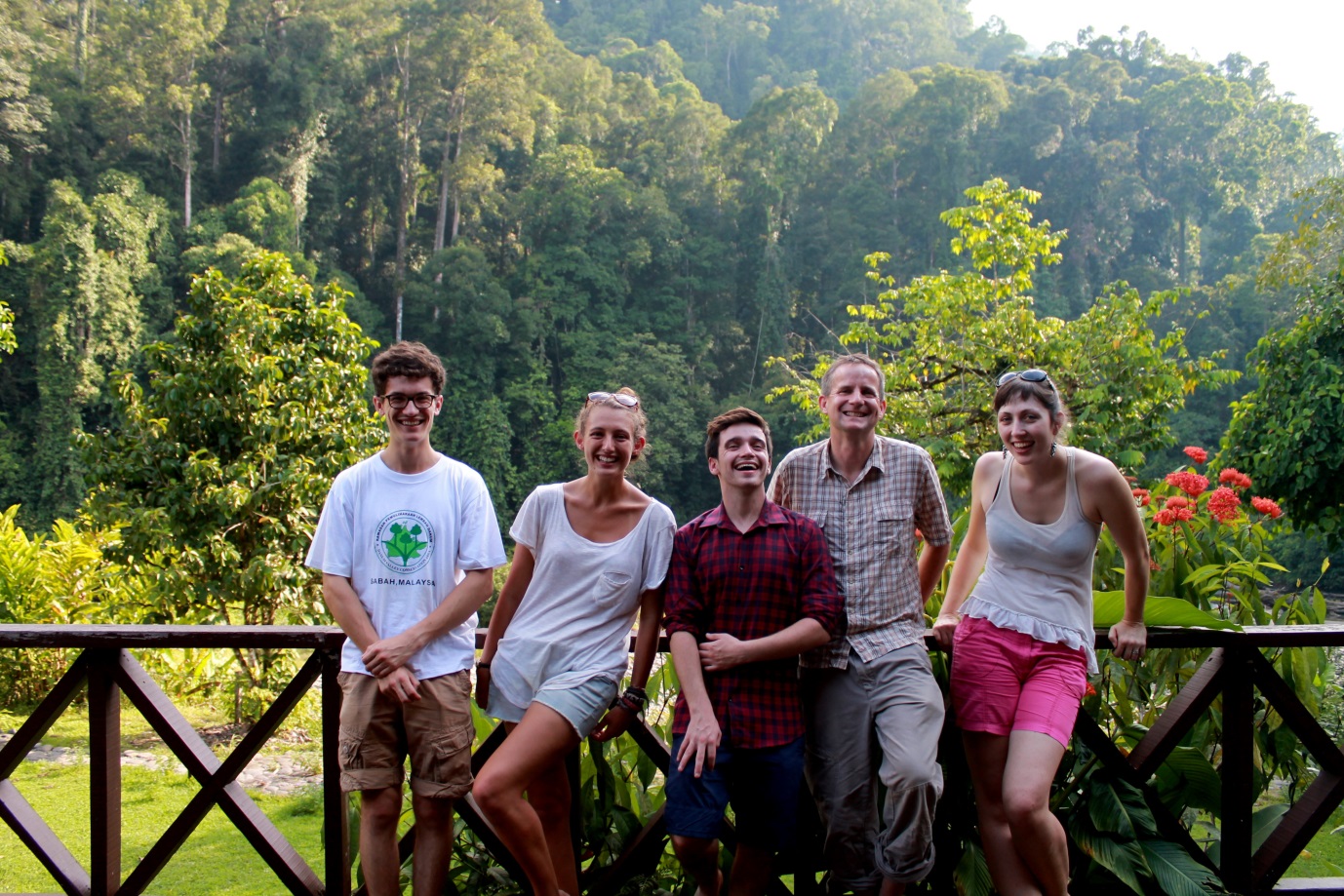 By Alice James - Third Year Biologist
By Alice James - Third Year Biologist
I was lucky enough to go on a field trip to Borneo in September this year. We spent two weeks in some amazing, pristine rainforest, doing all the normal Oxford things
Wildlife Encounters in Nova Scotia
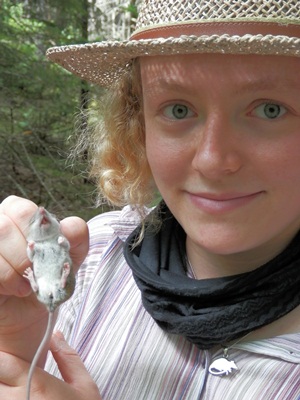 Wildlife Encounters in Nova Scotia
Wildlife Encounters in Nova Scotia
By Alysa Hulbert (Biological Sciences 3rd Year)
As a Biological Sciences student in my final year at Oxford, I am required to undertake a research project. This can be in any area of biology providing I can find a supervisor willing to take me on. I've always had a soft spot for rodents so I was drawn to the work of Dr Christina Buesching, who has conducted research on small mammal behaviour in Oxford University's Wytham Woods, and so I sent her an email expressing my interest. To my surprise she replied that she now lives not in Oxford but in Nova Scotia, Canada, and that she would be happy to have me come over during the summer vacation to collect data in her forest research site! This explains how in mid-July, just in time to escape the London 2012 Olympics, I found myself in the beautiful forested hills and wild rocky shores of Atlantic Canada. Home for the next five weeks was a cosy wooden cottage from which it was possible to stroll down to the sea in no time at all, so I hardly cared at all that I didn't have a TV to watch the Opening Ceremony! As I arrived there was a snowshoe hare on the lawn and that first night we ran out at dusk to see a porcupine that had climbed into a sapling at the end of the garden. This set a precedent for the coming weeks of frequent exciting wildlife encounters; muskrat, beaver, white-tailed deer, raccoon, woodchuck, skunk, garter snake, snapping turtle, osprey and loon.
Research Sketch: Dr Simon Smith (Senior Tutor)
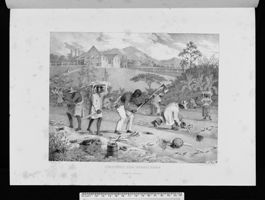 Did abolition of the transatlantic
slave trade damage enslaved women's health?
Did abolition of the transatlantic
slave trade damage enslaved women's health?
In 1807, the British parliament voted to abolish the transatlantic slave trade, following a long campaign led by William Wilberforce.
While most plantation owners opposed abolition, a few did not - including Joseph Foster Barham II, who owned Mesopotamia sugar estate in Jamaica.
Appalled by the suffering caused by the slave trade, Foster Barham (as MP for Stockbridge) voted with Wilberforce in the House of Commons for abolition and voluntarily ceased to purchase new African arrivals in 1792, 15 years before legal abolition. Mesopotamia's records are unusually detailed and record the ages, date of arrival, origin (whether African or born on the estate), health status, and work duties of 1,099 enslaved individuals on the estate between 1762 and 1832. These manuscripts are preserved in the Bodleian Library, Oxford.
On Mesopotamia, withdrawal from the slave trade led to an increase in the number of women sent to work in the cane fields, work considered to be the most arduous and riskiest on a plantation. Survival analysis suggests there was an accompanying deterioration in their survival chances: estimates suggest the risk of death was about 55% to 75%higher for women arriving on the estate after 1792 than before. To test whether exposure to fieldwork accounts for reduced survival prospects, the actual survival times of slaves (i.e. time to death) was compared with their counterfactual survival times had they never been exposed to fieldwork. The technique employed is intended to avoid problems caused by the ‘healthy worker survival effect': the tendency for labourers to be withdrawn from a hazardous occupation as their health failed, and reallocated to lighter duties.
Estimates suggest that continuous exposure to fieldwork on a sugar estate, relative to never being exposed, reduced survival times by approximately 30%. Consequently, the dread slaves felt at being sent to the fields appears well placed, especially for women who were less likely to occupy supervisory roles in sugar cultivation and, therefore, enjoyed the least amount of protection.
Reflections on a Field Trip to Borneo
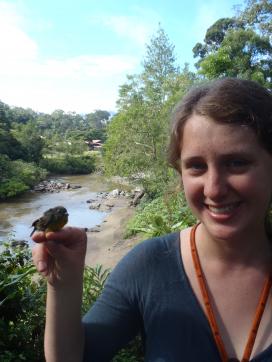 By Roberta Iley (Biological Sciences 3rd Year)
By Roberta Iley (Biological Sciences 3rd Year)
During summer 2011, I spent three months travelling and living abroad in South East Asia and Australia, learning as much about myself as I did about the ecosystems I went to study.
For the first month and a half of my travels I was living in a hut on a small remote island belonging to Sulawesi, Indonesia. I was collecting data for my dissertation in Biological Sciences out on the coral reefs, something that involved snorkelling every day over some of the most beautiful reefs in the world - it's a tough degree! My project was to look at coral rubble, i.e. fragments of coral rubble that accumulate from human and natural disturbances, and which are often washed up into patches. Inside the crevices and on the large surface areas of these fragments settle a plethora of organisms and I spent hours bent over petri dishes in the lab squinting at beautiful, but tiny, crabs, worms and shrimp. Perhaps the size of the organisms justifies the fact that they have been so poorly studied, but these coral rubble patches are an increasingly important habitat in the wake of such large human impacts on coral reefs and the potential of increasing intensities of storms with climate change.
I was working alongside a number of fantastic PhD students for this project and it was easy to regain a strict work ethic when you did not have the standard distractions of TV and readily available internet. This was really my first taste of living a much more ‘primitive' life without the home comforts that I am all too used to. There was no running water on the island with obvious implications for the bathroom arrangements and when the generator shut down at night, the place was plunged into a darkness that I had never really experienced before. This meant that we went to bed much earlier after the (stunning, holiday brochure-worthy) sunsets and correspondingly rose at the crack of dawn - a time not often seen in the life of an undergraduate student!
New Director of Music
 Brasenose is pleased to announce the appointment of Jonathan Newell as the College's first Director of Music. The post is designed to build on the work Nick Prozzillo has done as Graduate Director of Music, giving the college the benefit of an experienced musician supervising not only the choir and chapel music, but also our concerts (professional and amateur) and our wider musical life.
Brasenose is pleased to announce the appointment of Jonathan Newell as the College's first Director of Music. The post is designed to build on the work Nick Prozzillo has done as Graduate Director of Music, giving the college the benefit of an experienced musician supervising not only the choir and chapel music, but also our concerts (professional and amateur) and our wider musical life.
Jonathan is a vastly experienced organist and choral trainer. A graduate of Durham University, where he was the Organ Scholar of University College, he holds diplomas in organ playing and choir training from the Royal College of Organists, London and Trinity College, London. He also holds an M.A. in Choral Education from the University of Surrey. As well as experience in the UK, Jonathan has worked abroad - in Norway, running the music in five churches; in Cairo, he was Director of Music at the British International School; in Vienna, he even founded a chamber choir which performed at the Sturm-Graz F.C. Christmas party. Since 2009, he has been the Chief Examiner for the International Baccalaureate Diploma in music.
Memorial Service – Sir John Owen
A memorial service was held for Sir John Owen in Coventry Cathedral on Thursday March 24 at 3pm. The service was open to any Brasenose alumni that wanted to attend.
Michael Taylor - Head Porter
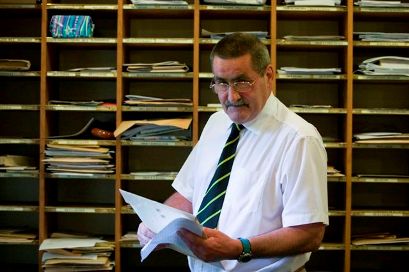 The college was deeply saddened by the sudden
death this term of Michael Taylor, our Head Porter. Mike had been with us since 1992, and became
a much-loved (even iconic) figure in college life. He was generally the first person visitors
and freshers met; and upheld the dignity of his position without ever losing
his sense of humour at the occasional absurdities of lodge life. He is survived by his wife Pat, daughter
Juli, son Joe and granddaughter Annabel.
The college was deeply saddened by the sudden
death this term of Michael Taylor, our Head Porter. Mike had been with us since 1992, and became
a much-loved (even iconic) figure in college life. He was generally the first person visitors
and freshers met; and upheld the dignity of his position without ever losing
his sense of humour at the occasional absurdities of lodge life. He is survived by his wife Pat, daughter
Juli, son Joe and granddaughter Annabel.
Read the Prospectus
Visit the Brasenose Prospectus page
Follow us on Twitter
Follow us on Twitter for news from students and tutors, Schools Liaison and other interesting things
